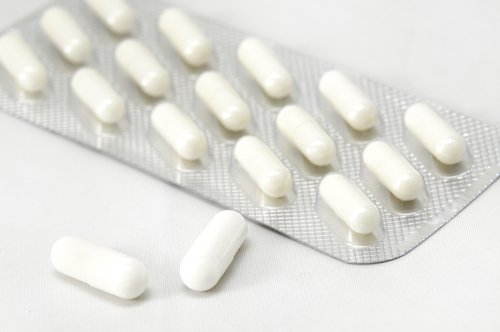Mitochondria-Targeting Generic Medicine Can Effectively Combat PAH, Study Shows

Treating pulmonary arterial hypertension (PAH) patients with the generic medicine dichloroacetate (DCA), which activates mitochondrial function, decreased pulmonary arterial pressure and improved the ability to walk, a new study shows.
The study, “Inhibition of pyruvate dehydrogenase kinase improves pulmonary arterial hypertension in genetically susceptible patients,” was published in the journal Science Translational Medicine.
PAH develops due to remodeling of blood vessels (vascular remodeling), which causes the blood vessels to become very narrow, leading to high blood pressure. There are multiple cell types that line arteries including smooth muscle cells, endothelial cells, and immune cells.
In patients with PAH, these cells tend to grow at a much higher rate than cells in healthy patients. This is due to a switch that occurs in the mitochondria, which is the powerhouse of the cell.
In normal conditions, the mitochondria provides cells with energy by undergoing a process called glucose oxidation, which uses glucose molecules to create energy. In patients with PAH, mitochondrial glucose oxidation is suppressed, and a process called glycolysis is increased as a way to create energy very quickly. This not only encourages extensive growth rates of the arterial cells, but also blocks a process called apoptosis, which refers to programmed cell death.
All together, these processes lead to increased growth of cells and decrease in cell death. Understandably, this causes an increase in the number of cells in the blood vessel, which crowds the vessel and increases blood pressure.
DCA is an inhibitor of the protein pyruvate dehydrogenase kinase (PDK) and it is used to treat cancer and congenital mitochondrial disease. PDK, in turn, is an inhibitor of mitochondrial function. Thus, DCA activates mitochondrial function. As PDK was found to be increased in lungs of patients with PAH compared to healthy patients, researchers hypothesized that treating patients with PAH with DCA would improve their condition by activating mitochondria.
Researchers at the University of Alberta and Imperial College London conducted a four-month, open-label study to determine the effectiveness of DCA in patients with idiopathic PAH (iPAH).
Researchers demonstrated that treatment with DCA led to a significant reduction in mean pulmonary arterial pressure, pulmonary vascular resistance and improvement in functional capacity, such as the ability to walk. Experiments done on PAH lungs showed that DCA treatment improved mitochondrial function. Interestingly, the response to DCA was not the same across the board. Some patients did not respond to the therapy at all.
The same gene can be slightly different in different individuals due to changes in single or multiple nucleotides (the building blocks of DNA) that code for a protein. Different forms of the same gene are called gene variants. Patients that were unresponsive were found to have variants of the gene SIRT3 and UCP2. Both of these genes code for mitochondrial proteins and they were both inhibiting mitochondrial function in PAH patients separately from the mechanism of PDK. Thus, DCA did not improve the mitochondrial function of these patients
“This is a great example of precision medicine, where the patients’ genes can be used to predict the effectiveness of a drug in a particular patient,” Martin Wilkins, MD, the study’s co-lead said in a press release. “This work will be important for the design of future trials with DCA (or other mitochondrial activators). We would spare patients carrying these two gene variants from recruitment to a study from which they may not benefit, allowing them to enroll in other studies. By focusing on patients that have a greater chance of improvement, we can increase the efficiency and decrease the cost of trial.”
Another exciting aspect of this study pertains to the fact that DCA is a generic drug and not sponsored by any pharmaceutical company. “This means that if future studies confirm our results and show a clear and definitive benefit of DCA in PAH, we may have an affordable, cheap treatment available to all,” Evangelos Michelakis, PhD, the study’s co-lead author.






